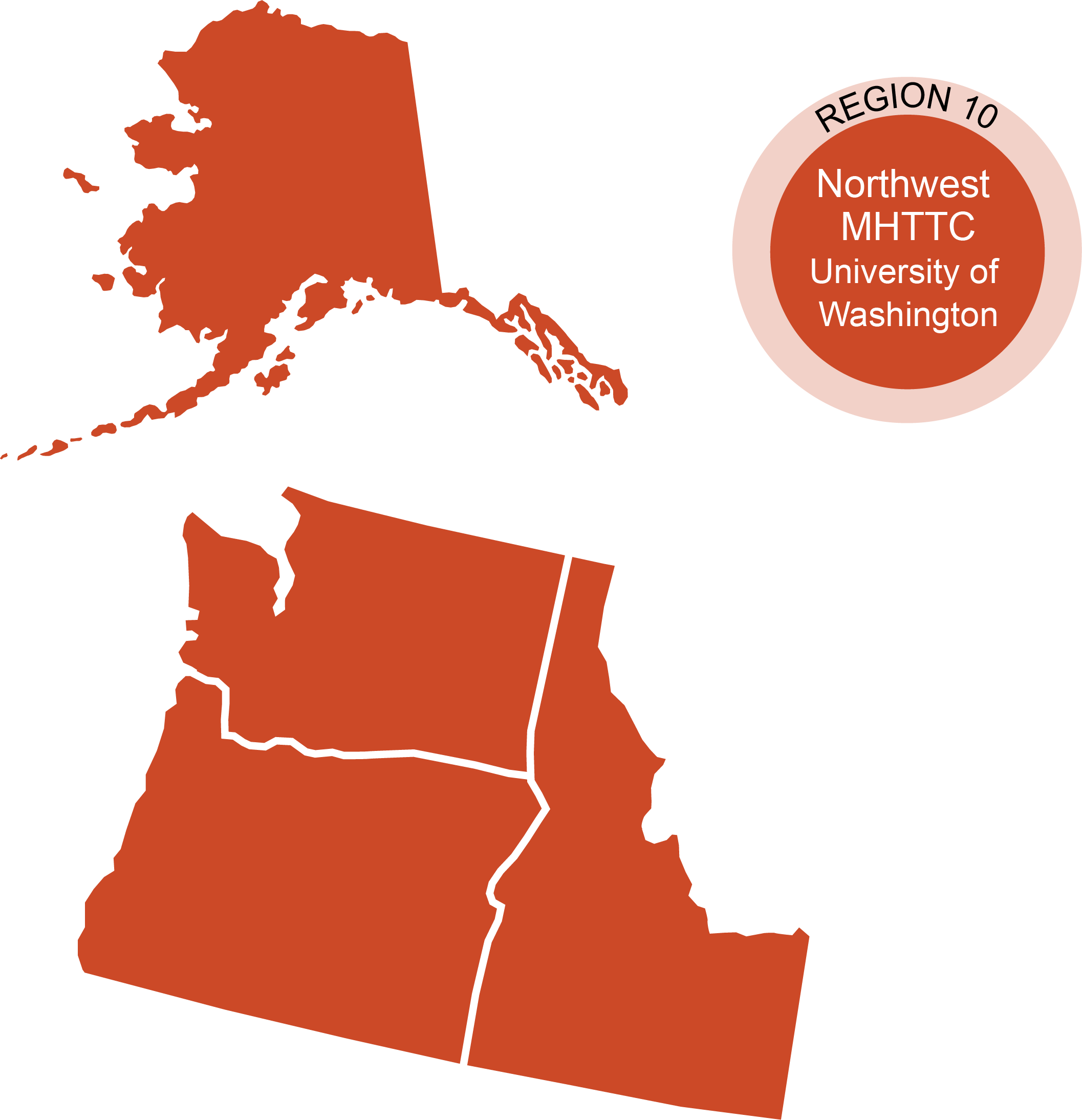Home > MIC Stories: Interconnected Systems Framework Demonstration Project

MIC Stories (MHTTCs Implementing Change) feature technical assistance projects that had a significant impact on practice.
In many schools in the Pacific Northwest, as is the case across the country, school mental health (when available) is often parallel or siloed from existing social, emotional, and behavioral initiatives, creating inefficiencies and inequities, as well as disconnections and delays for students receiving support. The Interconnected Systems Framework (ISF) is a structure and process that maximizes effectiveness and efficiency by blending the strengths of school and community mental health with strengths of the multi-tiered framework of Positive Behavioral Interventions and Supports (PBIS; Barrett, Eber, & Weist, 2017). Examples of demonstration sites implementing an ISF would be helpful to the Northwest region.
The Northwest ISF Demonstration Project aims to impact student achievement and attainment, increase identification and impact on students with internalizing behaviors, improve wellness, and reduce rates of student discipline problems and related impact of trauma, opioid and substance misuse, suicide prevention, depression, and/or anxiety. The project goals are to increase the capacity of districts to install and sustain effective systems that support the mental wellness of all students at the school level including:
(Center on PBIS, 2019)
Three districts in the Pacific Northwest region (two in Washington and one in Oregon) are part of the Northwest ISF Demonstration Project and connected to a larger national ISF initiative. This is a collaborative effort between the Northwest MHTTC, the Center on PBIS, state departments of education, regional training and technical assistance (TA) providers, and districts.
The following criteria were used to identify districts for the project (all districts were participating in Northwest MHTTC training and TA and had reached out requesting additional support):

The Northwest ISF Demonstration Project kicked off in September 2019 and since then, the Northwest MHTTC has provided:
Plans for trainings with districts were just getting started when the pandemic began, so the team shifted to monthly virtual meetings for several months, supporting district leaders as they responded to the. The original scope and sequence for training and TA was significantly altered, but participants agreed to continue to be involved and learn aspects of ISF through crisis response efforts during the pandemic.
To learn about participant perceptions of the quality and potential for positive impact of the training, attendees were encouraged to report on their experiences through a series of short feedback forms (results will be released at project completion).
Lead district participants were also asked to provide overall impacts through qualitative responses, here are two submissions:
Future evaluation will include fidelity and impact data at the district and school level.
Despite shifting from original scope and timeline due to the pandemic, participants utilized the expertise and peer support to bring problems of practice and receive technical assistance and ideas through networking opportunities. In addition, participants continued to deepen their understanding and knowledge of ISF. Each district was able to begin establishing a District Community Leadership Team, identify demonstration school sites, start preliminary assessment of the status of PBIS and School Mental Health, identify areas of need, and work with TA providers to initiate a professional development plan for 2020 – 2021.
The Northwest ISF Demonstration Project will continue in 2021 as schools prepare to bring students back after the pandemic. The project will return to the original plans, including district and team training, assessing fidelity and impact, fortifying Tier 1 and building/strengthening Tiers 2 and 3 inclusive of community partners, and scaling up across each district. The project is also expanding to a regional education service center in Oregon.
While schools are often referred to as the “defacto” mental health system for youth, many educational systems are unprepared to support the mental health needs of students and staff. Training and TA are needed to create systems change to merge multiple siloed initiatives, change the role of the clinician, integrate community mental health providers and install SMH within a Multi-Tiered System of Support (MTSS) framework. Due to the pandemic the Northwest MHTTC team had to adjust our plan for support but still saw progress overall as participants applied ISF concepts to the crisis.
Additional lessons learned include the following:
By creating demonstration sites, we can learn more about what is involved in integrating SMH within an MTSS framework and offer additional support to other schools and districts. These demonstration sites can partner with other districts to share their lessons learned and help communicate about barriers to policymakers. The Northwest MHTTC, with the support from national school mental health and MTSS subject matter experts, will continue to provide intensive training and TA to the demonstration sites and make lessons learned as well as training material and resources available for everyone.

The Northwest MHTTC, funded by the Substance Abuse and Mental Health Services Administration, is located in Seattle, WA and is housed at the University of Washington. The Northwest MHTTC provides training and technical assistance, and supports, develops and disseminates resources to the behavioral health and primary care workforce in the U.S. Department of Health and Human Services Region 10, which includes the following states: Alaska, Idaho, Oregon, and Washington. The Northwest MHTTC's mission is to advance workforce training and service delivery, help people and organizations incorporate effective practices, and improve the quality and effectiveness of prevention, treatment and recovery services.
Barrett, S., Eber, l., & Weist, M. (2017). Advancing education effectiveness: Interconnecting school mental health and school-wide positive behavior support. https://www.pbis.org/resource/advancing-education-effectiveness-interconnecting-school-mental-health-and-school-wide-positive-behavior-support
Center on Positive Behavioral Interventions and Supports.(2020). Retrieved December 03, 2020, from https://www.pbis.org/